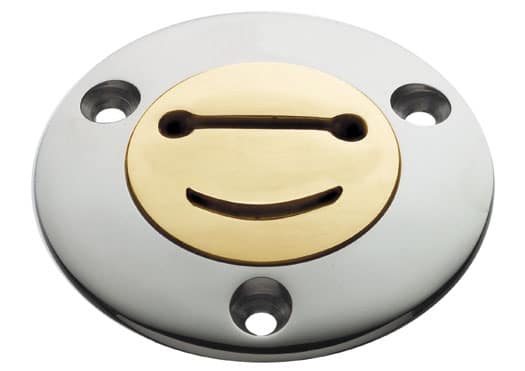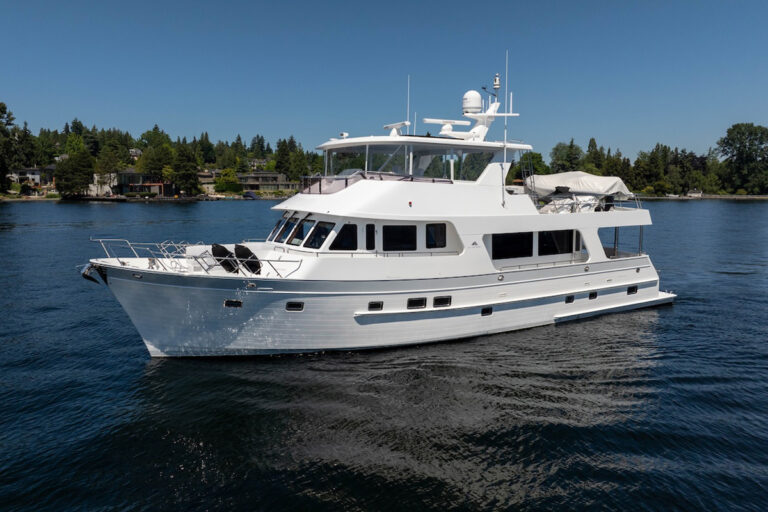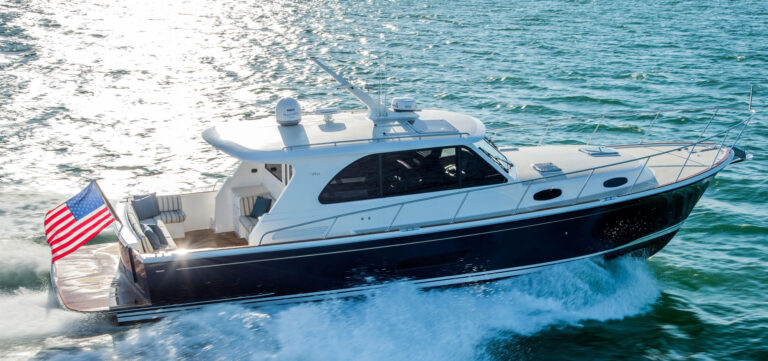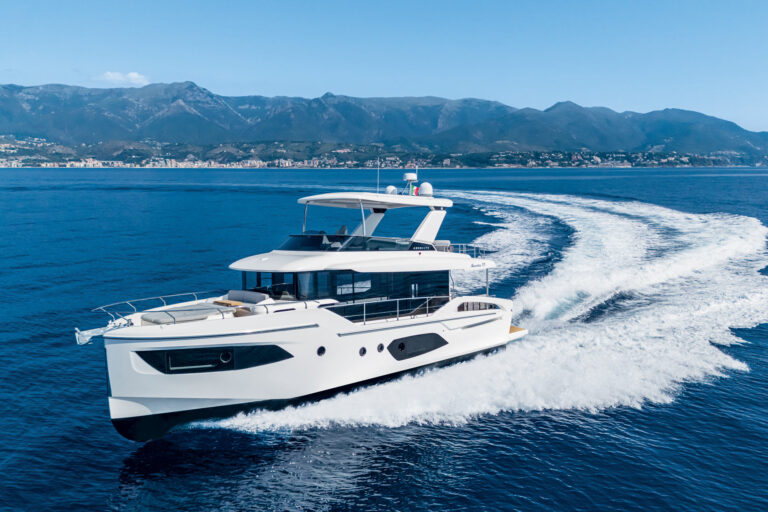
IT’S A GAS: Not only is fuel management necessary for safety, but it is also a matter of engine efficiency and reliability.
It’s the middle of winter and you’ve finally boarded the yacht that you delivered to sunnier climes last fall. Business, family and the holidays have kept you away several months, but now you’re looking at two weeks of cruising through the Keys and maybe even a jump over to the Bahamas. The Gulf Stream is rough, but not so rough that you’ll stay at the dock. About an hour into your cruise, an engine suddenly shuts down. You limp into the nearest port and, after careful consideration by an engine specialist, learn that your problem is fuel related. You feel a little queasy because the fuel problem could easily have shut down both engines. And from that moment forward, you decide that fuel management will become just as important as regular engine service.
Fuel management isn’t just a matter of safety. With the wildly fluctuating prices of fuels likely to remain a reality in the coming seasons, anything you can do to increase the efficiency of your engines, as well as the reliability of the fuel supplied to your engines, needs to be carefully considered.
The two biggest ways to ruin a tank of fuel-on a diesel or gasoline powered yacht-are water contamination and long-term storage. When you keep fuel stored and unused for more than three months, the higher aromatics that give you the octane and cetane ratings begin to evaporate. Gasoline that was rated 87 octane at the pump can become a barely usuable 80 octane by the end of a season.
Diesel starts separating and a substance akin to crude oil settles to the bottom of the tank. Gasoline breaks down into resins, varnishes and acids. Furthermore, on a rough day as the fuel supply is agitated, those contaminants will be lifted into the main body of fuel. If they are pulled into the fuel filters and pump, engine failure will likely occur.
To help ensure that you never have that queasy feeling again, try these strategies to keep your fuel clean, starting with filters and additives and progressing to fuel polishing equipment.
1. FILTER
The best-known name in fuel filtration for recreational boats is Racor, a Parker Hannefin company. Racor makes a wide variety of spin-on filters with clear contaminant collection bowls and drain valves for gas and diesel engines. Its duplex Turbine Series models are good for high-capacity water separation and fuel filtration because they allow the owner to throw a lever and switch to a fresh filter while the engine is running, postponing a shutdown and filter change at sea.
2. STABILIZE
Additive manufacturers are almost as numerous as over-the-counter pain relievers, but some specialize in recreational marine needs and remain in the forefront of fuel technology. Star brite, manufacturers of storage stabilizers for automotive and marine fuels and other maintenance products, has recently introduced Star*Tron, an enzyme-based additive for gas or diesel fuels that solves a host of fuel-related problems.
“At the end of the boating season last year, we were getting fifty to sixty calls a day from boat owners in the Northeast and Midwest complaining about gummy, gooey substances clogging the surfaces of their fuel/water separators, says Jeff Tieger, vice president of sales for Star brite. “It was gelling because of ethanol. Ethanol in alcohol-enhanced fuels acts as a coupler between hydrocarbons and water. When you have early or late-season temperature fluctuation in tanks, and fuel stays stored for long stretches of time, gelling takes place.
3. SEPARATE
Even pure diesel fuel will pick up about 5 percent (that’s fairly high) water through distribution channels. Gasoline will pick up 1 to 2 percent, but alcohol will increase its levels to 7 or even 8 percent. Any container that holds fuel will have some humid air and will be a source for water. For this reason, water separators have been the chief line of defense for diesel engines.
“Star*Tron’s enzyme opens up the bonds that hold fuel molecules together, making them more receptive to oxygen at combustion, giving something closer to complete combustion, explains Tieger. “Enzymes are biocatalysts, they don’t get consumed in the reaction, but they will initiate or control the rate of the reaction. The result is more fuel economy, less harmful emissions-down 90 percent.
4. POLISH
Increasingly, yacht owners are turning to “polishing equipment as the next step in fuel optimization, spinning out water and sediments. “If a filter becomes heavily clogged, it can create vapor lock, says John Napurano, president of Reverso Pumps, manufacturers of fuel-polishing equipment for diesel-powered yachts. “If the filter is too fine, or too clogged, the amount of vacuum necessary to keep fuel flowing to the engine spikes and turns liquid into gaseous vapor with air bubbles, which can be as damaging for the engine as water in the fuel.
Reverso Pumps’ newly designed FPS-150DC Fuel Polishing System uses a Racor Turbine filter with a high-capacity Aqua Block II element. The system processes 150 gallons an hour and removes 100 percent of water and any algae buildup in fuel tanks to keep diesel fuel clean and reliable. Reverso Pumps also produces systems with Separ filters, including one that processes up to 500 gallons per hour.
For larger motoryachts and expedition vessels, Alfa Laval has adapted technologies proven in commercial shipping to produce fuel-polishing equipment for optimal fuel reliability. The new MIB 303 is a solids-retaining centrifugal separator that uses a solid bowl and has a removable bowl wall that can be lifted out without disturbing the separating disc stack. Designed to be easy to install, operate and maintain, the MIB 303 polishes up to 197 gallons per hour and is protected from damage caused by voltage variations sometimes found in foreign ports.
Economic motivation has never been greater, but even at half the going price of fuel, it’s more important than ever to manage fuel quality for your yacht.
Contacts: Alfa Laval, www.alfalaval.com Racor, www.parker.com Reverso Pumps, www.reversopumps.com Star brite, www.starbrite.com









